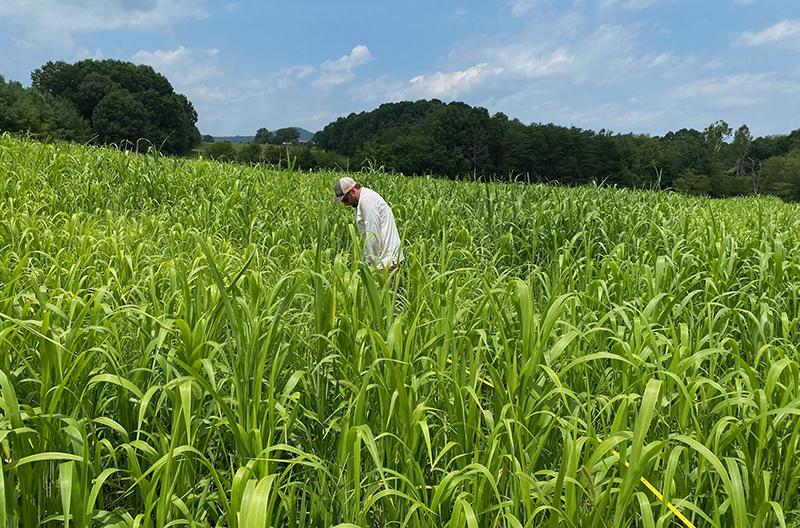After more than a year of education and implementation of Ecological Outcome Verification monitoring systems in Fairview, North Carolina, Hickory Nut Gap announces certification as a Savory Institute Hub.
As a Savory Hub, Hickory Nut Gap Farm becomes a regional learning center that brings the power of holistic management and farm ecological health monitoring to members of the region and community through its own unique impact plan which is supported by the Savory Institute and other fellow hubs around the world.
“As the founders of the Hickory Nut Gap brand, Amy and I have always believed in building trust with customers,” said Jamie Ager, Hickory Nut Gap Farms co-owner and fourth generation family farmer. “As a Savory Hub, we can use data to help drive positive environmental outcomes and build alignment between agriculture and the environment. As we approach Earth Day it’s important to demonstrate that it is possible to have healthy ecosystems and delicious meat. Partnering with the Savory Institute, allows us to deliver on that promise across our entire region.”
Helping more farms and farmers, restauranteurs and chefs, foodies and environmentalists better understand and implement regenerative farming practices allows Hickory Nut Gap Farms to produce meats with flavor and tenderness while improving the environment.
The company is enrolling its full supply chain of more than 80 regenerative farms representing over 20,000 acres across the Southeastern USA. Hickory Nut Gap will use EOV to baseline and monitor the positive impacts that its partner farmers have on the environment. Hickory Nut Gap has already enrolled more than 10 farms in 2021 and will continue to push throughout 2022 to baseline their entire regenerative supply chain.
“A key component of holistic management is the feedback loop,” said Asher Wright, Hickory Nut Gap Farms’ Director of Agricultural Operations. “When managing natural systems the ROI is often slow, and so knowing how management decisions are playing out before it’s too late is paramount. The desired outcomes of regenerative agriculture we desire are also slow, which is why Ecological Monitoring, essentially a set of leading indicators, is important in informing us of the health of our land.
“If some of the indicators need improvement, then holistic management can help provide the tools and framework necessary to drive the change that is needed. Our approach is more than reporting on outcomes, it’s a process that enables land managers to more precisely determine their trajectory.”
Here’s what happens on the farm that makes regenerative practices good for the land, for the animals, for the farmers and for the planet.
- Pastures see improved soil health that results in an annual cycle of regeneration.
- This results in better animal gain – less time grazing to full size means younger, more tender and healthy grassfed beef.
- Better pastures grow more grass which means farmers can raise more cattle on the same acreage which increases yield and profitability.
- Better profitability and higher animal value helps sustain small family farmer lifestyles and creates generational expansion of rural economies and culture.
“As farmers, we are always searching for ways to progress and take care of the land to the best of our ability,” said Paige Smart, Hickory Nut Gap partner farmer at S&K Cattle Development in Hope Mills, North Carolina. “The EOV data will help us tease out which practices are truly bettering our soils and the planet. It’s imperative, especially now, that our decisions are supported by science and this provides that information.”
For more information, visit HickoryNutGap.com.

